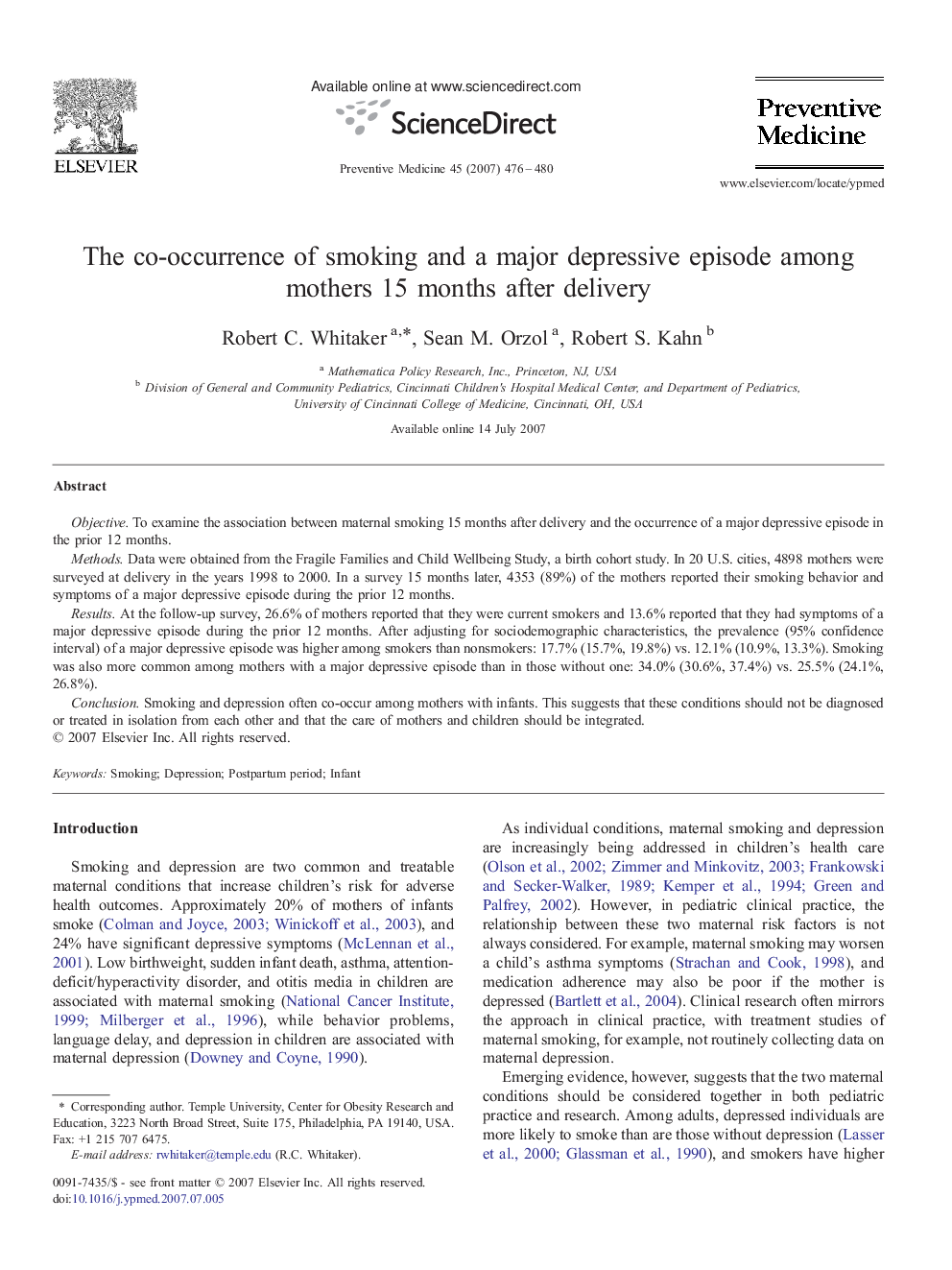| Article ID | Journal | Published Year | Pages | File Type |
|---|---|---|---|---|
| 3101733 | Preventive Medicine | 2007 | 5 Pages |
Objective.To examine the association between maternal smoking 15 months after delivery and the occurrence of a major depressive episode in the prior 12 months.Methods.Data were obtained from the Fragile Families and Child Wellbeing Study, a birth cohort study. In 20 U.S. cities, 4898 mothers were surveyed at delivery in the years 1998 to 2000. In a survey 15 months later, 4353 (89%) of the mothers reported their smoking behavior and symptoms of a major depressive episode during the prior 12 months.Results.At the follow-up survey, 26.6% of mothers reported that they were current smokers and 13.6% reported that they had symptoms of a major depressive episode during the prior 12 months. After adjusting for sociodemographic characteristics, the prevalence (95% confidence interval) of a major depressive episode was higher among smokers than nonsmokers: 17.7% (15.7%, 19.8%) vs. 12.1% (10.9%, 13.3%). Smoking was also more common among mothers with a major depressive episode than in those without one: 34.0% (30.6%, 37.4%) vs. 25.5% (24.1%, 26.8%).Conclusion.Smoking and depression often co-occur among mothers with infants. This suggests that these conditions should not be diagnosed or treated in isolation from each other and that the care of mothers and children should be integrated.
